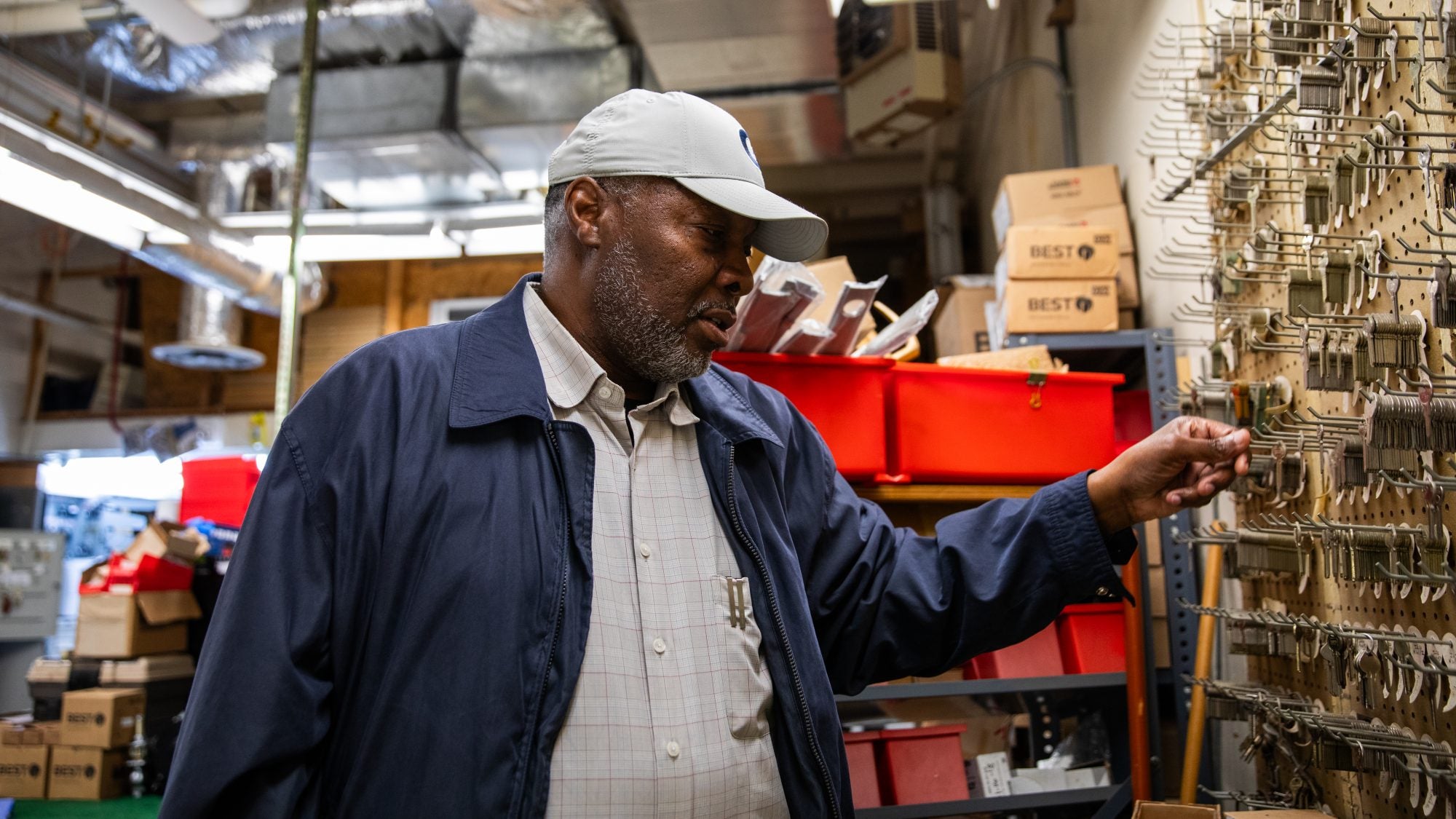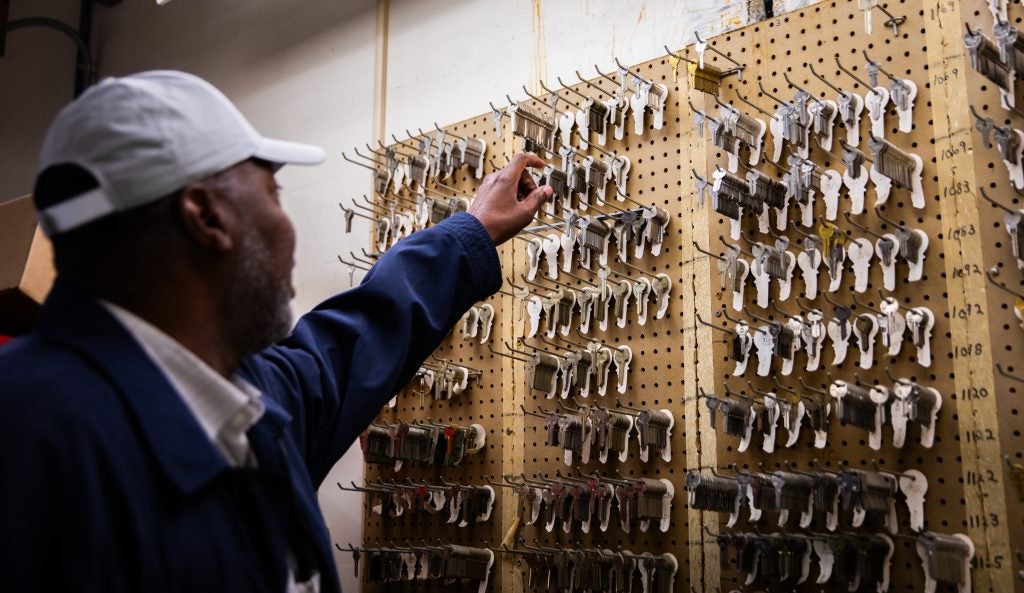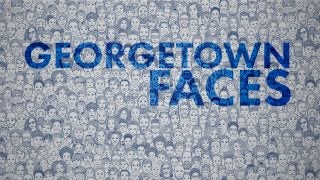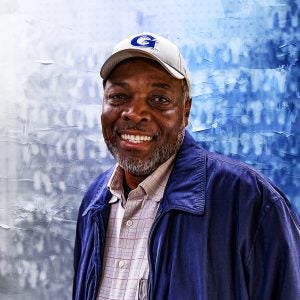
This is the first in a refreshed version of Georgetown Faces, a storytelling series that celebrates the beloved figures, unsung heroes and dedicated Hoyas who make our campus special.
Al Brown has worked at Georgetown for nearly 40 years. He oversees the maintenance and locks of more than 13,000 doors on Main Campus, ensuring that they’re bolting smoothly and securely.
Throughout his tenure, Brown has worked through snowstorms and COVID-19, all-nighters and move-ins, to ensure students, faculty and staff can access campus.
He started at Georgetown in 1984 as a campus police officer. He remembers showing up 15 minutes late on his first day after getting stuck in traffic; his fellow officers bet he’d only make it two weeks.
Thirty-nine years later, Brown has earned his stripes in positions across facilities, now serving as the electronic door access and lock shop manager. After decades of honing his craft, he’s determined to keep learning.
“I’m always ready to listen to a new approach, because there’s always a different way to do something,” he said. “Technology is changing so fast, and we have to keep up with it.”
Learn more about Brown’s 39-year career at Georgetown, what gets him out of bed in the morning, and his prized jazz collection — just don’t ask him to name his favorite.
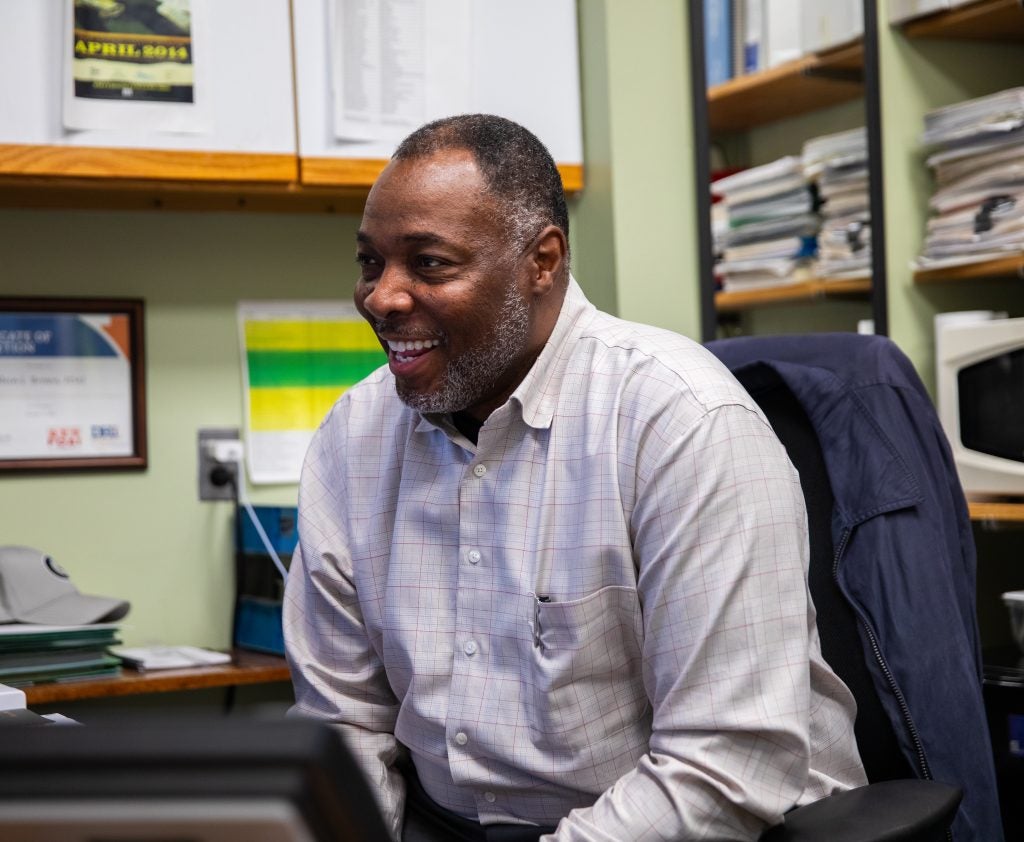
Something I keep in my office: A flyer I like of John Coltrane. I enjoy jazz. I’m a Coltrane fan. I love the old bebop style. And it’s spreading — the guys in the shop now are listening to jazz. I love it.
When I started listening to jazz: My mom used to buy the Capitol Records Club [a record subscription service], and she would get two or three albums every month back when I was a baby. We would listen to Dinah Washington and Ella Fitzgerald. She would play music on the weekends when she had chores. That’s how we grew up, with different types of music. I put [music] on now when I’m doing chores. I have thousands of albums. I’ve got all my old jazz albums that are somewhat timeless.
Which albums I’d bring to a desert island: That’s not fair. It’s like asking which child do you like better. Miles Davis’ Kind of Blue. Thelonious Monk with John Coltrane. And Aja by Steely Dan. I listen to a lot of music. I’m going to send you a list. Is that fair?
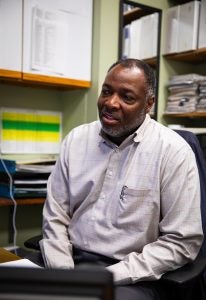 How Georgetown has changed since I’ve been here: The university looks so different. Things have changed in the almost 40 years [I’ve been here]. I’ve loved looking at old pictures of the university a hundred years ago because I can relate. I’ve done so many different things here. There’s [always] something different to challenge you. That’s interesting to me. Every day has been different.
How Georgetown has changed since I’ve been here: The university looks so different. Things have changed in the almost 40 years [I’ve been here]. I’ve loved looking at old pictures of the university a hundred years ago because I can relate. I’ve done so many different things here. There’s [always] something different to challenge you. That’s interesting to me. Every day has been different.
How I’ve changed since I’ve been here: I’ve changed in so many ways. I was 39 when my daughter was born, and I used to love bringing her up here to Georgetown Day. She loved Georgetown Day. I tried my best to get her to come to Georgetown, but she went to Temple and is doing her own thing in Missouri. So that’s fun seeing her come through.
You’re also learning something new every day. There are challenges. This didn’t work, and you try to fix it. We’re in the fixing business. You have to always be ready to learn a new way to do it.
How I got into the fixing business: My dad worked in a shipyard as a draftsman. He was a jack of all trades. He would drag my brother and I out and make us fix stuff. And he had a bus line, “Brown’s Bus Service.” He would pick up guys in our neighborhood and take them to the shipyard every day.
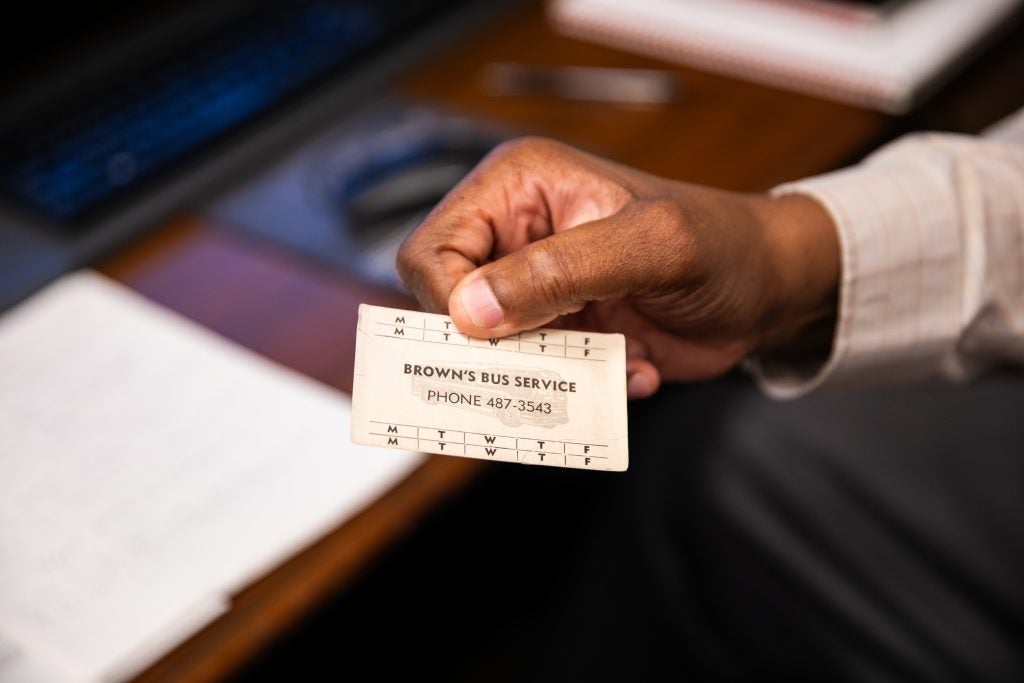
The bus had a hydraulic brake line, so my brother and I would take turns pumping the brakes to get air out of the brake line. We didn’t know what we were doing, but we were helping him. And we loved it. … I guess it’s in the blood.
What people might be surprised to know about my job: I’m on call 24/7, 365 [days a year]. There’s never a time when we can’t respond because somebody’s kid could be locked out. So we have to have a means or way to get them into their room or make sure they’re safe.
Favorite door on Main Campus: The main doors going into Healy off the John Carroll statue. They are beautiful doors. You don’t see doors like that anymore. They’re so large and solid wood. When you go and look at them, you’ll be surprised that they’re very heavy. Those are very special doors.
